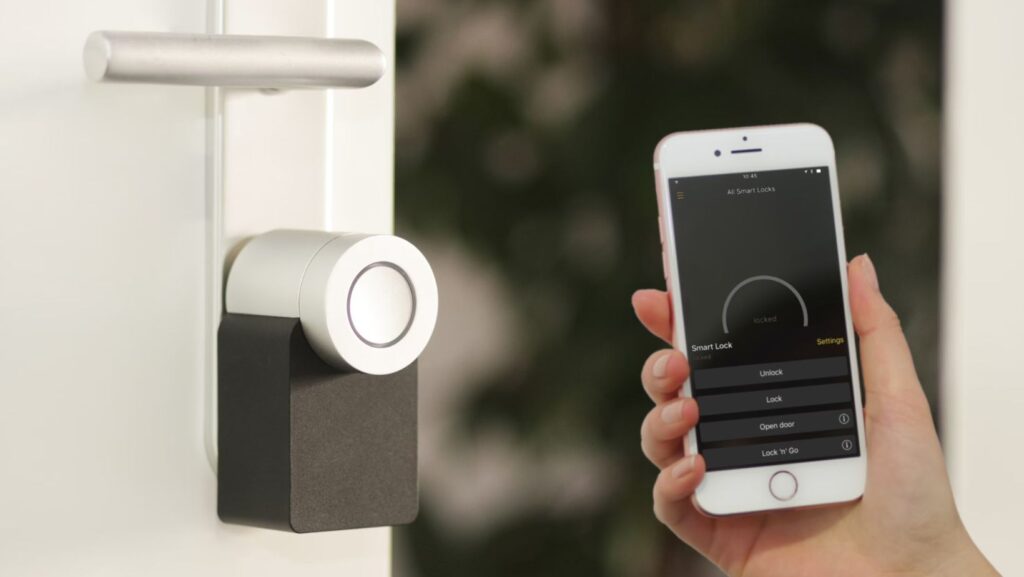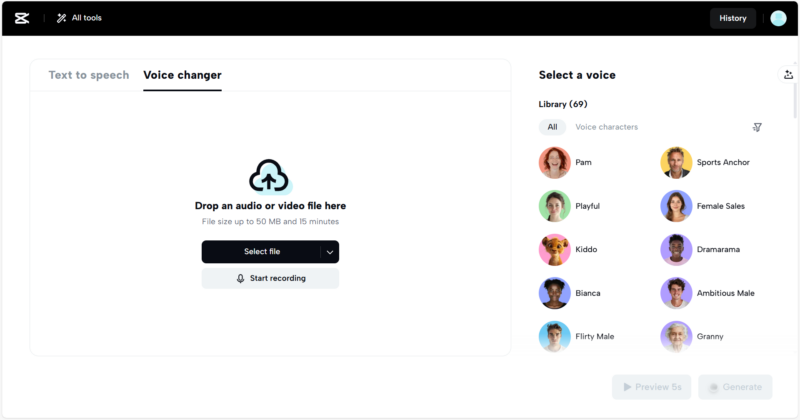
Smart homes is an idea often thrown around. We’ve seen it in movies, from Iron Man’s AI-powered mansion to spookier iterations like those in Black Mirror, as well as in real life with various automations and smart assistants.
Nowadays, it’s possible for everyday people to go beyond the basics of programming a thermostat to full on AI-driven ecosystems. From voice-controlled appliances to AI security features, smart homes can make life more convenient and secure.
Let’s take a look at the concept of smart homes and see how far they’ve come along in recent years.
AI-Powered Home Automation
Smart homes plus AI is a powerful combination. It’s now possible to create more intuitive and personalized smart homes than ever before. No more adjusting thermostats and flipping switches.
Smarter control with AI-powered assistants
Tools like Alexa and Google Assistant have become essential for smart home automation. They act as the central control, like Jarvis, which you can interact with like a regular person.
Whether you give a voice command or set a specific routine, these systems can perform actions like adjusting the temperature, turning on the lights and firing up your coffee maker. They also learn over time and adjust to your habits, making everything feel intuitive.
For example, an AI-powered thermostat can recognize when residents typically wake up and adjust the temperature accordingly. Similarly, smart lighting systems can automatically dim or brighten based on time of day and user activity, creating a seamless and energy-efficient living environment.
Smart kitchens & AI-driven appliances
AI is also transforming kitchens with intelligent appliances designed to make cooking and meal planning easier. Smart refrigerators can track expiration dates, suggest recipes based on available ingredients, and even place grocery orders when supplies run low. Automated coffee makers learn individual preferences, ensuring the perfect cup is ready each morning. These advancements are making kitchens more efficient and personalized.
The Evolution Of Home Entertainment
Home entertainment is getting smarter, offering more personalised and immersive experiences than ever before. AI is transforming how people watch, listen, and play, making everything from streaming to gaming feel more interactive and intuitive.
- AI-driven content recommendations. Streaming services like Netflix, Hulu, and Spotify use AI to suggest movies, shows, and music based on individual preferences. These algorithms learn from viewing and listening habits, curating personalized playlists and recommendations. Some platforms even experiment with AI-driven storytelling that adapts based on audience choices.
- Smart speakers and immersive audio. AI-powered sound systems fine-tune audio settings to match room acoustics and user preferences. Smart speakers like Alexa and Google Home can recognise different users and tailor their responses, playing specific music, audiobooks, or news updates for each person. AI-driven home theatre systems also enhance sound quality, optimizing audio for movies, games, or live sports.
- AI-enhanced gaming and interactive experiences. AI is making virtual environments more realistic and gameplay more dynamic. Advanced algorithms adjust difficulty levels based on player skill, creating opponents that learn and evolve. AI also plays a key role in hyper-realistic simulations, blurring the line between gaming and reality while making interactive experiences feel more lifelike than ever.
AI-driven entertainment technology is constantly evolving. Whether it’s refining personalized recommendations, enhancing audio experiences, or pushing the boundaries of gaming, AI is shaping the future of how people enjoy various digital entertainment options. In the context of online casinos, AI is making gaming safer, fairer and more responsible, even providing AI-powered customer support for faster problem resolution.
AI & Home Security
Security has always been a top priority for homeowners, and AI is making homes safer than ever.
AI-powered surveillance & facial recognition
Traditional security cameras record footage, but AI-driven surveillance systems take security a step further.

Facial recognition technology allows smart cameras to identify family members, frequent visitors, and potential intruders. These systems can send real-time alerts if an unknown person is detected near the home, improving safety and peace of mind.
Smart locks & voice-activated security
AI-powered smart locks allow homeowners to control access remotely through mobile apps or voice commands. Some systems use biometric authentication, such as fingerprint or facial recognition, to enhance security. Voice-activated security systems further streamline protection by allowing users to arm or disarm their home with a simple command.
Predictive security & threat detection
AI doesn’t just react to threats – it can predict them. Machine learning algorithms analyze patterns in home activity to detect unusual behavior. If an AI system notices that a door is opened at an unexpected time or that movement is detected while the home is supposed to be empty, it can trigger an alert or notify authorities. This predictive security technology is helping homeowners stay one step ahead of potential threats.
Energy Efficiency & Sustainability In Ai-Powered Homes
AI isn’t just making homes greener and smarter. Intelligent systems are reducing energy waste and promoting sustainability in a few ways:
Smart thermostats & energy management
Devices like Nest and Ecobee use AI to learn user habits and adjust heating and cooling settings accordingly. These smart thermostats optimize energy use, ensuring that no power is wasted when a home is unoccupied. Some models even integrate with weather forecasts to make proactive adjustments based on predicted temperature changes.
AI-powered solar energy optimization
Renewable energy solutions are also benefiting from AI advancements. AI-powered solar management systems track energy production and adjust consumption patterns to maximize efficiency. By analyzing weather conditions and household energy usage, these systems can store excess power for later use or redistribute it when demand is high.
The future of AI-driven energy grids
Looking ahead, AI has the potential to revolutionize entire energy grids. Smart home systems could communicate with AI-powered power grids to distribute electricity more efficiently, reducing waste and lowering costs. Personalized consumption tracking will also help homeowners make informed decisions about energy usage, promoting more sustainable living.
Wrap-Up
AI is making our homes smarter, more efficient and more secure. With everything from security improvements to automated coffee machines – the future of the domestic space looks exciting.

As technology continues to evolve, smart homes will become even more intuitive, personal, and integrated. However, balancing innovation with privacy and sustainability will be key to ensuring that AI-driven living remains safe and beneficial for everyone.



